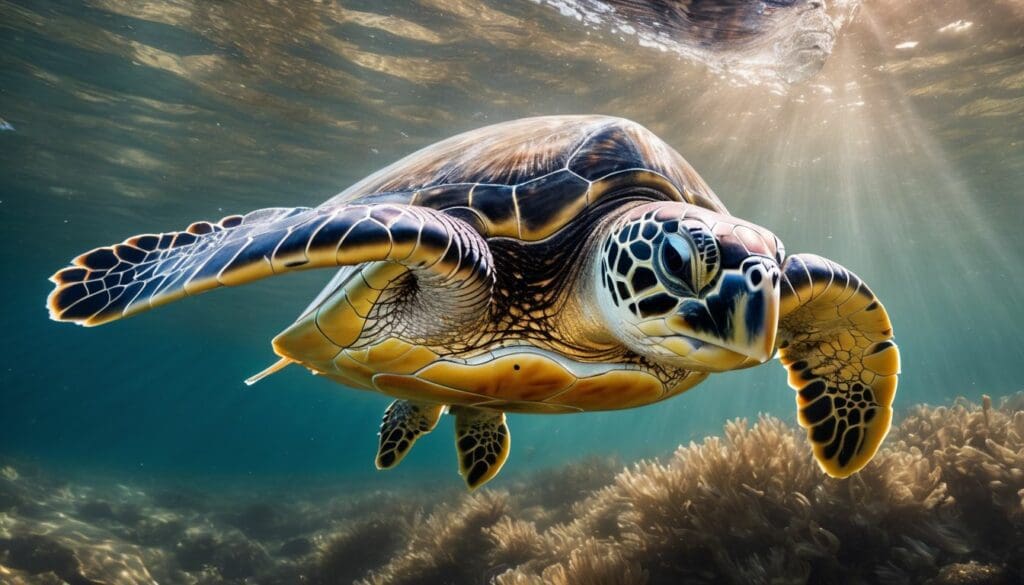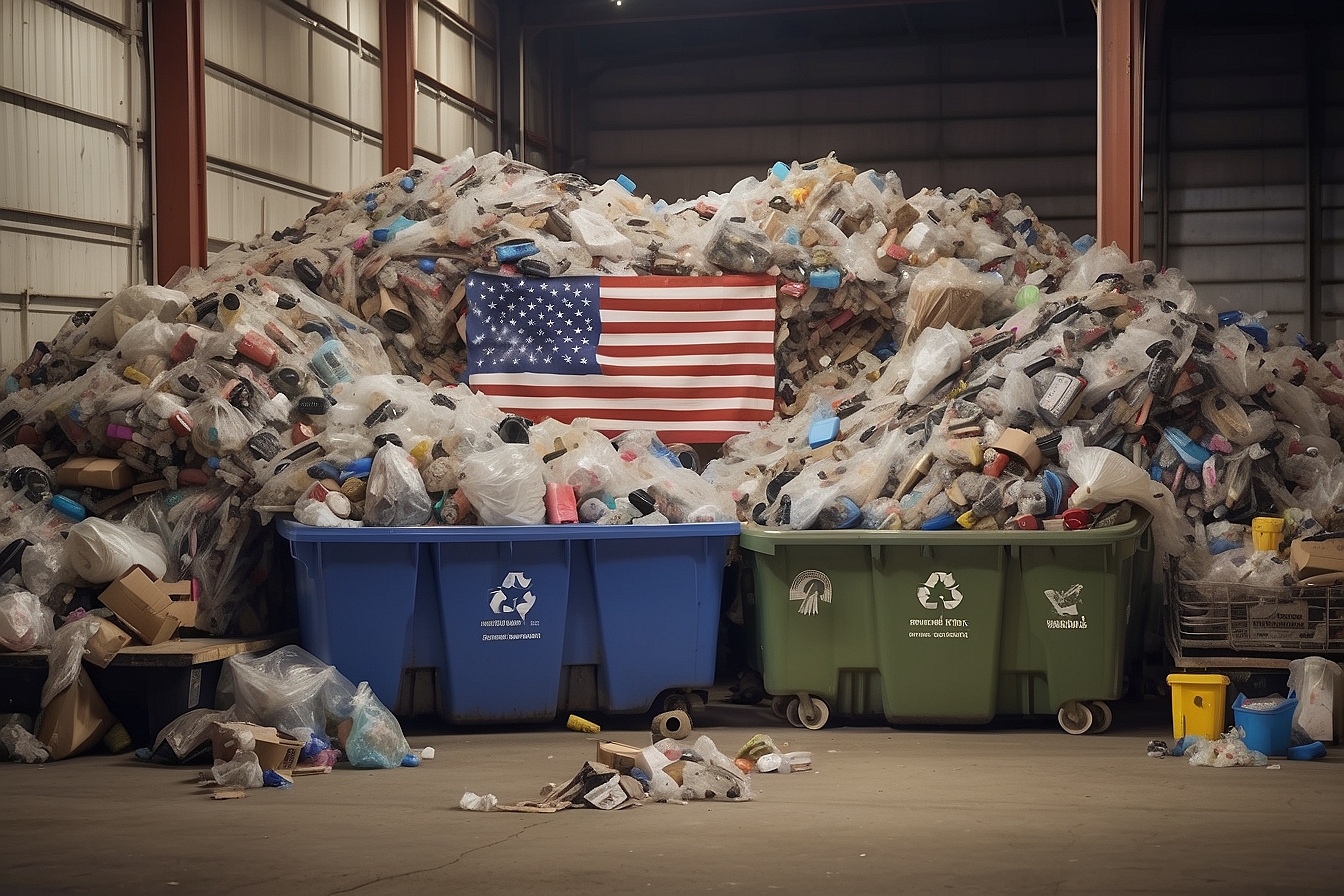We’re all too familiar with the heart-wrenching sights of marine animals ensnared in swathes of plastic, a clear sign that our oceans are suffering. These images strike a chord as we share your sense of urgency and commitment to find solutions; it’s alarming to think that recent research suggests over 100 million marine creatures perish annually from pollution-related incidents.
Our insights aim to unravel the devastating impact plastic rubbish has on our aquatic counterparts and present practical measures we can all take to alleviate this environmental plight.
Let’s plunge into this together and make waves for positive change!
Key Takeaways
- Over 100 million marine creatures die each year due to plastic pollution, suffering from ingestion and entanglement caused by waste in our oceans.
- To combat this, reducing the use of single – use plastics and supporting laws that tackle plastic production are key steps. This involves using reusable products like bags and bottles and learning about proper recycling practices.
- Organisations play a big part by cleaning up beaches, pushing for policies against one-time-use plastics, and teaching people about the damage caused by ocean pollution.
- Education is vital to inform individuals about the negative impact of plastics on marine ecosystems, encouraging them to change their habits for the betterment of marine life.
- Taking immediate action is essential; through responsible consumption, proper disposal of plastic waste, and participation in conservation efforts we can safeguard our oceans’ health.
The Impact of Plastic Pollution on Marine Life
Plastic pollution has a devastating impact on marine life, leading to ingestion, suffocation, and entanglement of species. This results in the deaths of thousands of marine animals every year.
Ingestion, suffocation, and entanglement of species
Marine animals often mistake plastic waste for food, leading to ingestion that can cause internal injuries or death. Turtles, dolphins, and seabirds are particularly at risk as plastics may block their digestive tracts or release harmful chemicals into their bodies.
We witness the devastating effects of this plastic pollution on marine ecosystems daily.
Entanglement is another serious threat facing sea creatures due to ocean pollution. Seals, whales, and sharks get caught in abandoned fishing nets and other debris, which restricts their movement and can lead to suffocation or drowning.
By addressing these issues promptly, we aim to conserve marine species affected by plastic pollution and restore balance within our precious ocean habitats. Moving forward, let’s explore the number of deaths among marine animals every year as a direct consequence of plastic debris.
Deaths of thousands of marine animals every year
Plastic pollution leads to the deaths of thousands of marine animals every year. Sea creatures often mistake plastic debris for food, leading to ingestion and eventual death. Additionally, many marine animals become entangled in plastic waste, causing suffocation or restricting their movement and ability to find food.
To address this dire situation, we must take immediate action by reducing our use of single-use plastics and properly disposing of waste. By raising awareness about the impact of plastic pollution on marine life and supporting conservation efforts, we can work towards protecting these vulnerable species from further harm.
Moving forward, let’s explore effective strategies for reducing plastic pollution in the ocean and preserving the delicate balance of marine ecosystems.
Ways to Reduce Plastic Pollution in the Ocean
We must stop the problem at its source by reducing our use of single-use plastic and promoting recycling programmes. International organisations are taking action to clean up ocean plastic waste and promote sustainable alternatives, but educating individuals on the importance of reducing plastic pollution is crucial for long-term change.
Stopping the problem at the source
To stop plastic pollution from harming marine life, we must focus on reducing the production and use of single-use plastics. This involves encouraging individuals to adopt eco-friendly alternatives such as reusable bags, water bottles, and straws.
Additionally, supporting legislative measures to reduce plastic production and implementing extended producer responsibility programs is crucial in tackling the issue at its root. Educating communities about proper waste management and recycling also plays a vital role in preventing plastic from ending up in the ocean.
Taking action to prevent plastic pollution from entering our oceans is essential for safeguarding marine life. By addressing the problem at its source through advocacy for sustainable practices and policies, we can make a significant impact on protecting our oceans and the creatures that call it home.
Actions taken by organizations
Organisations are actively working to tackle plastic pollution in the ocean. They conduct regular beach clean-ups to remove plastic waste from coastal areas, preventing it from entering the marine environment.
Moreover, several organisations collaborate with local communities and governments to implement policies and regulations that reduce single-use plastics and promote sustainable alternatives.
These initiatives play a crucial role in protecting marine life and preserving fragile ecosystems.
Furthermore, many organisations also focus on educating the public about the impact of plastic pollution on marine life, raising awareness about responsible consumption and proper disposal of plastics.
The importance of education on plastic pollution
Education plays a crucial role in raising awareness about the harmful effects of plastic pollution on marine life. By educating ourselves and others, we can understand the impact of our actions on the environment and wildlife.
Understanding how plastic waste affects marine ecosystems empowers us to make informed decisions to reduce our plastic consumption and disposal. Through education, individuals become advocates for change, spreading knowledge and encouraging sustainable practices.
Educational initiatives also play a vital part in shaping future generations’ attitudes towards plastic pollution. By incorporating environmental education into school curricula, young people gain an understanding of their responsibility to protect marine life from the harmful effects of plastic debris.
Conclusion
In conclusion, we must take immediate action to reduce plastic pollution in our oceans. By stopping the problem at its source and supporting organisations that work towards this goal, we can make a difference.
Education on the harmful effects of plastic pollution is crucial for creating long-term change. Together, we can protect marine life and preserve our precious ocean ecosystems.
FAQs
1. What does plastic pollution do to marine life?
Plastic pollution causes serious harm to sea creatures, including ingestion by marine animals and entanglement that can lead to injuries or death.
2. How does plastic in the ocean affect ecosystems?
Plastic debris in the ocean disrupts marine ecosystems, hurting not just individual animals but also damaging the whole environmental impact of those systems.
3. Can plastic waste really impact all kinds of marine wildlife?
Yes, from tiny plankton to large whales, all sorts of marine species are affected by the harmful effects of plastic waste through contamination and ingestion.
4. Are there steps being taken for conservation against plastic pollution’s damage?
Efforts for conserving marine species involve reducing ocean pollution and cleaning up existing debris to minimise further ecological damage caused by plastics.
5. Why should we worry about plastics in our seas?
The consequences of plastic pollution are widespread; they contribute significantly to environmental degradation and pose a threat to the overall health of our oceans and wildlife living within them.





